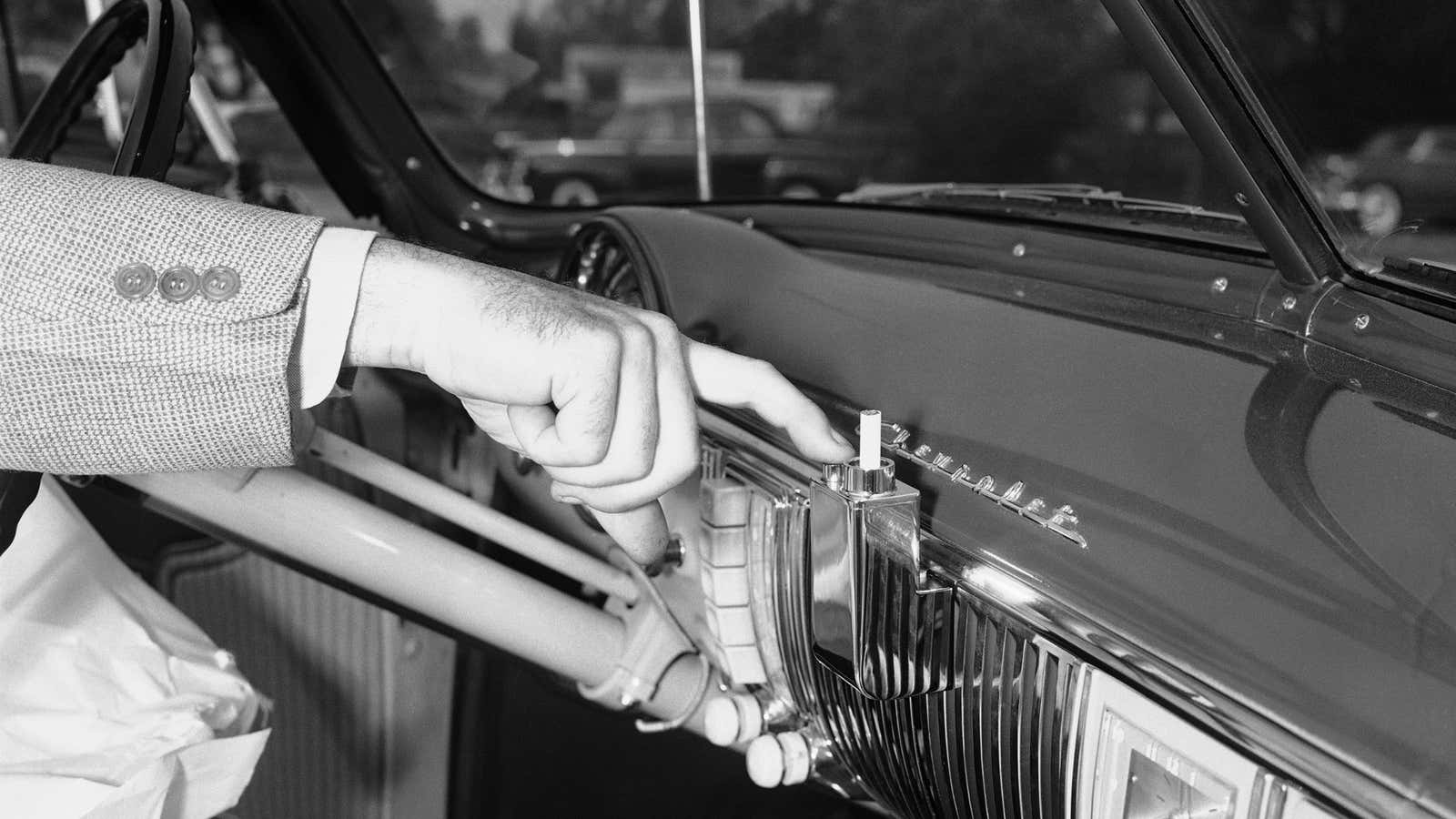Hyundai Motor has made an “unprecedented decision” among global automotive makers, the Korea Herald reported today—it is eliminating the “cigarette lighter jack” from all its vehicles sold in Korea and replacing it with a USB power point.
The next step, the paper reported, may be to make this replacement in all the cars it sells globally. Charging a smartphone with the newly-attached USB charger would take one hour, Hyundai said, “seven times faster than when using a separate portable charger.”
Tobacco accessories have been slow to disappear from autos; back in 1994, Chrysler “made a splash” by introducing the first cars without ashtrays since the 1930s. Now, if Hyundai’s substitution catches on (and tech writers like David Pogue have been begging for it for years) it may be the beginning of the end for the ubiquitous car cigarette lighter socket.
The cigarette lighter itself, once used to light actual tobacco with hot coils, is no longer offered as standard in the United States and Europe, but the 12-volt power supply that comes from the thing the lighter goes into (no can agree what to call it—”cigarette lighter jack,” “accessory socket,” “receptacle,” and “car power socket” are some favorites) is in high demand, where it is used for a stupendous array of accessories like cell phone chargers and GPS locators.
Hyundai’s move, if it spreads to other car makers, could make things much simpler for drivers, but eliminate a niche middleman industry: the makers of “USB car chargers,” which turns the socket into a USB port, and the accessories companies that make 12-volt chargers for phones and other gadgets that fit into the socket.

It would also decimate the “things that plug into cars” industry—a whole host of manufacturers around the world make everything from kettles to hairdryers to neon car lights that plug directly into your car’s cigarette lighter.
Before it disappears for good, let’s take a moment to appreciate the the lowly car cigarette lighter socket. After all, for decades it was the most standardized, portable source of electricity after batteries. No matter where you went in the world, you could carry a charger made for a car cigarette lighter socket and it would fit in the socket, and deliver a reliable 12 volts of electricity.
And for smokers, all is not lost—you can always buy a USB-powered cigarette lighter. And Hyundai has promised that “the in-car ashtray will remain the same.”
